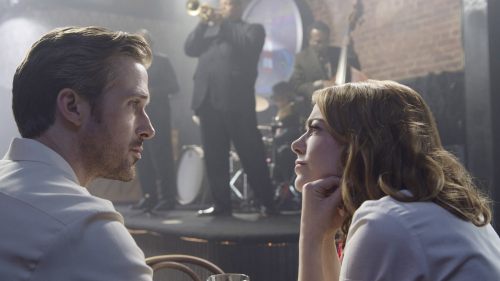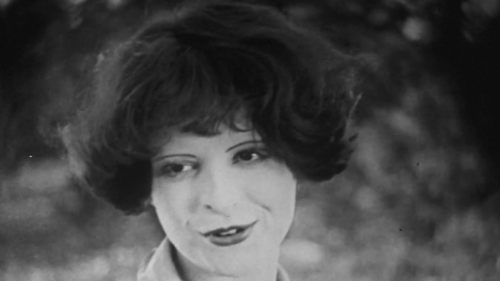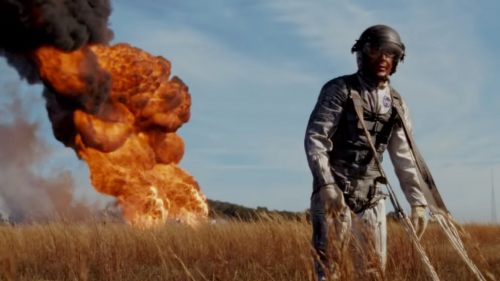The Horrors Of Damien Chazelle
First Man is out soon. Get your tickets here!
The release of First Man this week completes the trifecta of an apparently charmed career for director Damien Chazelle: critical praise, financial success and nine Oscars for Whiplash and La La Land (including a statuette for Chazelle, the youngest Best Director winner in history), with First Man poised to continue that hot streak. Yet not so long ago, Chazelle was toiling in the genre trenches as he struggled to realize his personal visions. His talent shined through in his horror and thriller work as well—though not at first.
While he was exploring the possibilities of musically oriented drama in his very first feature, 2009’s Guy and Madeline on a Park Bench, Chazelle also delved into the darker side in his screenplays. He made the Black List in 2010 with his spec script The Claim, about a single father whose 4-year-old daughter is kidnapped, and whose quest to rescue her is complicated by a couple who claim that the girl is their own vanished child. (It was optioned last year by Oceanside Media, with Ericson Core of Invincible and the Point Break remake attached to direct, but there have been no updates since.)
Chazelle also took writing gigs to pay the bills, and one of those was The Last Exorcism Part II, the 2013 sequel to the found-footage hit starring Ashley Bell as a possessed young woman. You’d be hard-pressed to find any of Chazelle’s concerns or filmmaking energy in Last Exorcism Part II, which finds Bell’s Nell Sweetzer taking up residence in a New Orleans home for girls and beset once again by demonic forces. Director Ed Gass-Donnelly rewrote Chazelle’s script, and attempted a slow-burn approach that curdles into enervation, with little of the scary immediacy of its predecessor.
Chazelle’s next fright sequel fared significantly better, though it started life as an original. After J.J. Abrams’ Bad Robot company optioned a script called The Cellar by Josh Campbell and Matthew Stuecken, Chazelle was hired to both rewrite and direct the project. Over the course of development, the decision was made to transform it into a “spiritual sequel” to Cloverfield, with Chazelle adapting it into that universe, though he departed when the financing came together for Whiplash, his longtime passion project. Nonetheless, he contributed enough to earn co-script credit on the movie (helmed by Dan Trachtenberg), which was shot in secret as Valencia and emerged in 2016 as 10 Cloverfield Lane to strong critical and audience response.
Although it’s pretty far removed from Chazelle’s directorial oeuvre in terms of subject matter, Lane does echo the generational-clash themes of Whiplash. Just as the latter’s tyrannical instructor Fletcher (J.K. Simmons) lords it over teenage student Andrew (Miles Teller), Lane’s middle-aged villain Howard (John Goodman) emotionally manipulates and physically abuses Michelle (Mary Elizabeth Winstead), the young woman he has brought to his underground bunker. (Howard was apparently more sympathetic in the Cellar draft; for more on the changes, go here.)
Chazelle’s concerns can be much more clearly seen in Grand Piano, his one original genre screenplay to see production. He based Whiplash on his own emotionally grueling experiences as a music student with a dictatorial bandleader who turned the pursuit of performing excellence into a contact sport, and also funneled those traumatic memories into this story of a pianist compelled toward perfection in the most frightening way imaginable. Elijah Wood plays Tom Selznick, who returns to the ivories five years after stage fright sidetracked his career. When he begins a concert in a Chicago music hall, he turns a page of his sheet music and discovers a note that warns, “Play one wrong note and you DIE.” Its author is Clem (John Cusack), who begins communicating with Tom via an earpiece and wields a silenced sniper rifle to assure that Tom follows his commands.
Grand Piano was shot in Barcelona by Spanish director Eugenio Mira—a musician and piano player himself, with film-composing credits including Nacho Vigalondo’s Timecrimes. He brings a sense of Hitchcockian flourish to Chazelle’s script, which in the midst of its central conflict finds room for a small body count, and ultimately reveals Clem’s terrorization of Tom to be motivated by financial rather than aesthetic concerns. Yet as Tom (very sympathetically played by Wood) channels his desperation to survive into a transformative performance, the story’s metaphor, in the context of its author, becomes clear: He’s the student rising above the harsh ministrations of a brutal “instructor,” conquering that demon to achieve an acknowledged place of excellence. In that sense, Grand Piano is an essential piece in the puzzle of Chazelle’s career.



